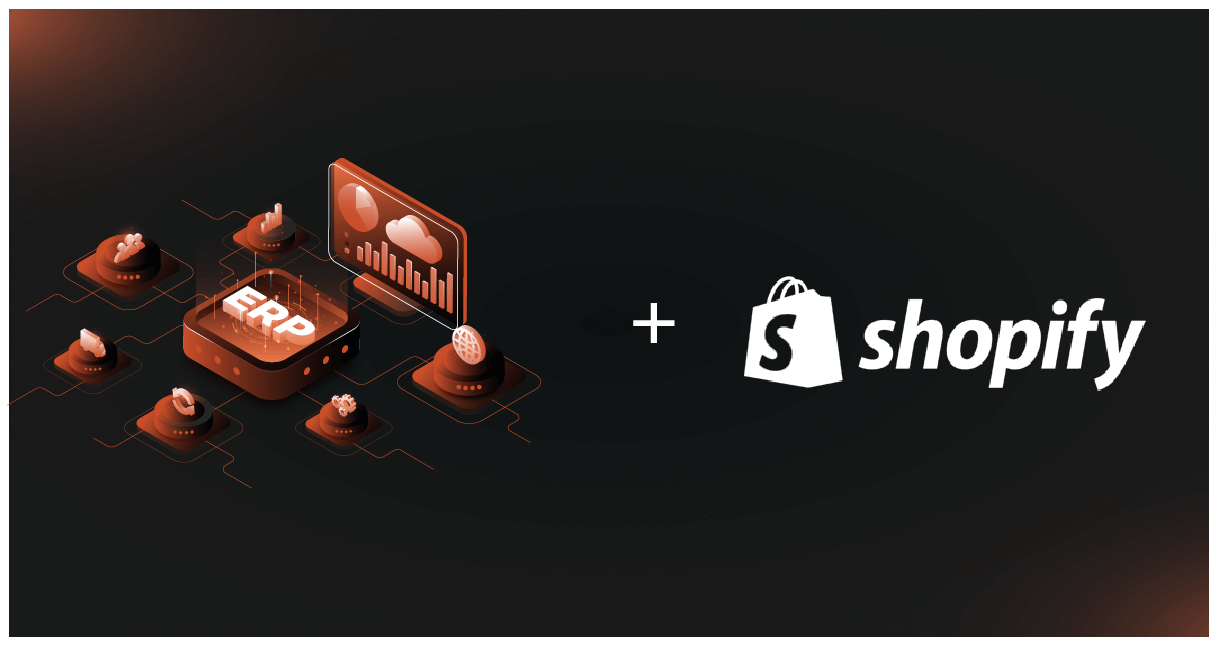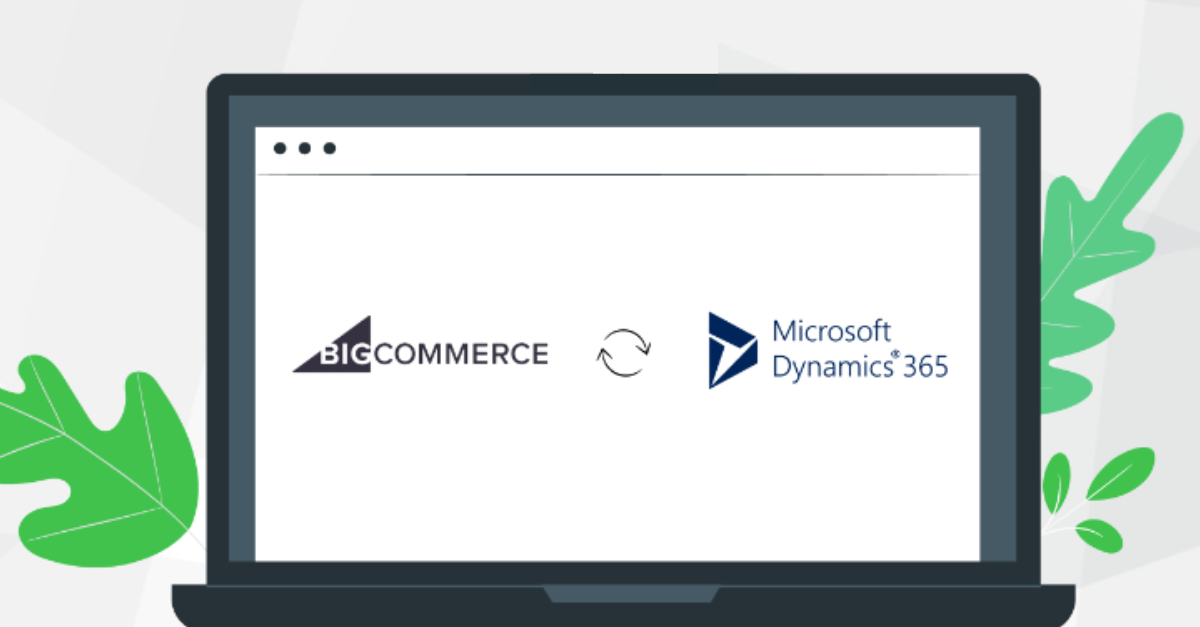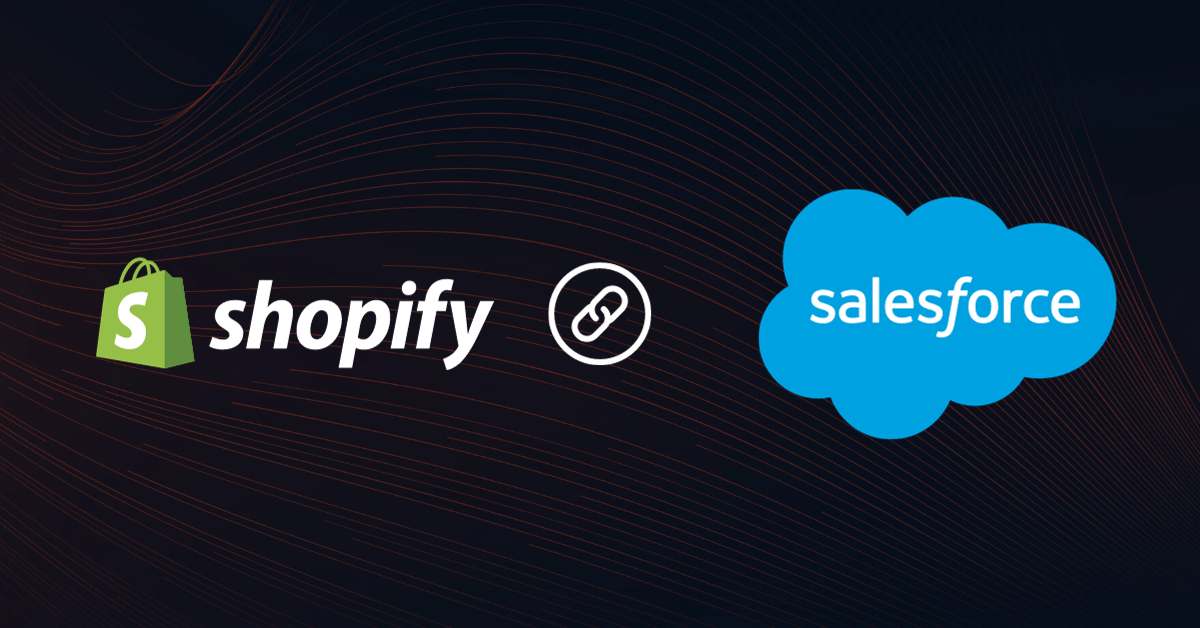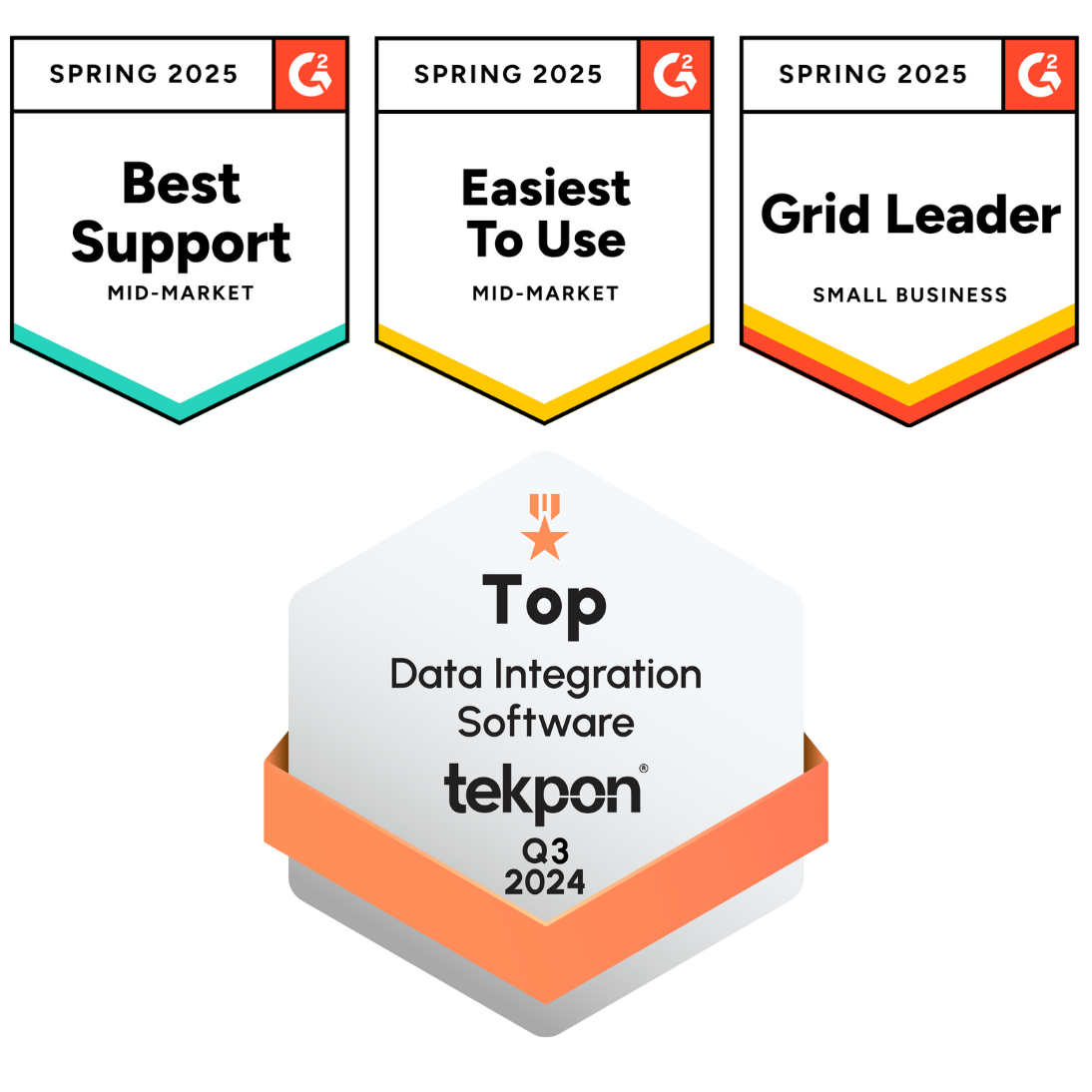If you have an online store on Shopify and your Epicor P21 ERP system handling all the back-office operations, but the two are working in isolation, you’re not fully leveraging the power of either platform. You’re missing out on the efficiency and automation that comes with integrating the two.
By connecting Shopify and Epicor Prophet 21, you can get a seamless flow of data between your ecommerce and ERP (Enterprise Resource Planning) systems, automating tasks that would otherwise be time-consuming and error-prone. Let’s take a look at how this integration works.
Methods of Shopify Epicor P21 Integration
To facilitate Shopify integration with Epicor p21, there are three main options:
1. Native Integration
Epicor P21 provides a robust set of APIs (Application Programming Interface) that enable seamless integration with external platforms like Shopify. With native integration, businesses can leverage these APIs to connect their Shopify store directly with Epicor P21. This method allows companies to automate processes, synchronize data, and retrieve real-time information between the two systems.
By using the available API endpoints, businesses can integrate functions like inventory management, order processing, and customer data updates directly into Shopify. This ensures real-time synchronization between the two systems, providing efficiency and reducing manual errors.
However, native integration requires a solid understanding of both Shopify and Epicor P21’s API capabilities, as well as technical expertise for setup and maintenance. While this method is highly customizable, it does require a skilled developer to implement the integration.
2. Custom Integration
For businesses that need a more personalized approach, custom integration is the best choice. This method involves building a custom code from scratch, allowing complete flexibility to match specific business requirements.
Here, a unique code is developed to bridge the connection between Shopify and Epicor P21, with tailored solutions for product sync, pricing, inventory management, and order processing. Custom integration provides businesses the freedom to design workflows and processes based on their operational needs.
This method does demand significant technical expertise, as it involves writing custom code to facilitate the connection. It’s essential to have in-depth knowledge of both systems and API design principles. While custom integration provides flexibility, it’s also typically more expensive due to the time, resources, and technical skills required for development and long-term support.
3. Third-Party Applications
For businesses looking for a more hassle-free solution, using a third-party integration platform (iPaaS) is an excellent choice. iPaaS providers offer pre-built connectors and integration services that simplify the process of connecting Shopify with Epicor P21.
This method is especially suitable for businesses that want to avoid the complexities of coding and manual setup. With an iPaaS solution, companies can quickly set up integrations without the need for internal technical expertise. The integration platform handles the technical aspects, such as data mapping, error handling, and system synchronization, freeing up internal employees to focus on other areas of the business.
Also see: ERP Integration with Shopify [Methods & Challenges]
Why Opt For Shopify P21 Integration
Proper ERP-eCommerce integration enables the automatic flow of information bi-directionally between the two systems meaning data only needs to be entered into one system once.
Inventory quantities, prices, descriptions, and images are managed in the ERP software and are automatically reflected online.
This results in various efficiencies such as inventory levels automatically updating across all channels and systems once a product is sold on the online store, and as the product gets received into a warehouse and added to inventory.
With Shopify integration, there is no need to manually monitor and adjust the stock of products on the eCommerce site or store. You sell only what is available, and all new products are automatically updated on the site.
Thus, your visitors have the most complete and reliable information about any product or service.
Benefits of Epicor P21 Integration with Shopify
Integrating Epicor Prophet 21 ERP with your other business systems through custom APIs provides a robust business platform.
Epicor P21 integration is highly reliable as it streamlines the sales process, manages the supply chain, improves analytics, and saves valuable time and resources.
Boost Efficiency
When you connect Epicor P21 with Shopify, you streamline your operations. The flow of data between the two systems is seamless, reducing errors and speeding up everything from inventory management to order fulfillment. You’re not just saving time – you’re also improving accuracy.
Speed Up Your Sales Process
Sales cycles become shorter. Orders are processed faster, and inventory updates happen in real-time. This means your customers get what they want, when they want it. With less manual work and more automation, your team can focus on delivering a great customer experience.
Simplify Your Supply Chain
Managing inventory, sourcing products, and fulfilling orders becomes much smoother. With automated syncing, you’ll always know exactly what’s in stock and where it’s going. This helps avoid delays, cut down on mistakes, and ultimately gets products to customers faster.
Get Smarter Insights
Data is power. With integrated systems, you can easily pull detailed reports on sales, inventory, and customer behavior. This gives you the insights you need to make smart business decisions, predict trends, and stay ahead of the competition.
Stay Ahead with Service & Maintenance
Tracking sales, processing orders, and managing maintenance is now all in one place. By cutting out redundant data entry, you ensure a smoother experience for your team and your customers. And if something needs attention, you can act quickly without missing a beat.
Save Time and Reduce Manual Work
Eliminating long hours of data entry. That’s exactly what integration offers. Your systems work together to update and sync automatically. Your team can spend less time on administrative tasks and more time focusing on high-value work.
Create a Seamless Online Experience
Customers expect a smooth, fast shopping experience. By linking your Shopify store with your backend systems, you can offer just that. No downtime, no delays. Everything works together to create a fast, reliable service.
Organize Your Content Efficiently
Managing content and documents becomes simpler when everything’s connected. With integrated systems, you get easy access to the right data, at the right time, and without the need for manual tracking. You save on costs, boost productivity, and improve the overall workflow.
Recommended read: Prophet 21 and Salesforce Integration Guide [+Case Study]
Case Study: Shopify & Prophet 21 Connected By DCKAP Integrator
Scattered customer data, an over-reliance on manual data entry, complex internal workflows led Quality Farm Supply to seek an integration partner. The team selected DCKAP to integrate their ERP software with their Shopify store, aiming to streamline their business processes and enhance the customer experience across all digital touchpoints.
The DCKAP team worked closely with Quality Farm Supply to integrate Epicor P21 with Shopify using custom APIs. This seamless integration addressed the key challenges they were facing:
- Centralized Data Management: By syncing customer data between Shopify and Epicor P21, Quality Farm Supply was able to have a single, reliable source of truth. This ensured accuracy across customer profiles, inventory levels, and orders, providing a unified view of the business.
- Automation of Operations: DCKAP’s integration streamlined manual processes. Real-time inventory updates, automatic order processing, and synchronized pricing data eliminated the need for manual input, drastically reducing errors and saving time.
- Improved Customer Experience: With up-to-date product availability, faster order fulfillment, and accurate shipping details, customers received a more reliable and satisfying shopping experience. This led to increased customer loyalty and repeat business.
- Efficient Supply Chain Management: The integration allowed for smoother coordination between purchasing, inventory management, and shipping, ensuring products were always in stock and orders were fulfilled quickly.
As a result of integrating their Shopify store with their Epicor Prophet 21 ERP, Quality Farm Supply now enjoys faster order fulfillment, increased productivity, better decision-making, enhanced customer experience, and more.
Quality Farm Supply’s website is now equipped with a completely transitioned Shopify Advanced store and high-level integrations like Epicor P21 ERP to ensure a better customer experience.
Read the full case study here.
The ERP Integration Platform for Manufacturers & Distributors: DCKAP Integrator
DCKAP Integrator is a powerful, high-tech solution designed to simplify and automate your end-to-end workflows. Built specifically with distributors and manufacturers in mind, this tool has helped numerous B2B businesses streamline their operations effectively.
With DCKAP Integrator, you can seamlessly connect all your critical business systems—ERP, CRM (Customer Relationship Management), PIM, ecommerce, EDI (Electronic Data Interchange), inventory management, and more. It provides rapid and efficient syncing between these platforms, bringing enhanced value to your business. If you’re ready to see the difference DCKAP Integrator can make, schedule a demo with us, and we’ll be in touch soon.
Schedule a demo with the experts in P21 Integration today.
FAQs:
What is Epicor Prophet 21?
Prophet 21, an Epicor ERP, is a unique, cloud-based business management system. This leading ERP solution is a robust combination of expert distribution systems and a fully web-enabled infrastructure which includes HTML5, Angular JS, .NET, and SQL Server.
As a wholesaler, distributor, manufacturer, merchant, or a B2B/B2C brand, Epicor Prophet 21 helps you anticipate customer needs, cut down on repetitive orders, boost your productivity, meet customer demands, and run your business efficiently with multiple distribution centers.
The integration of your Epicor P21 ERP allows you to synchronize your data with Shopify to save time and prevent entry errors. It also keeps up to date with all the business processes through customized ERP integration.
Why is Epicor P21 ERP a popular choice among distributors?
- Integrated Service and Maintenance: A one-stop-shop for everything from technician schedules to warranties and service contracts.
- Business Intelligence: This Epicor Data Analytics provides built-in reports, analytics tools, and “as of” reporting through responsive dashboards.
- Order and Inventory Management: Regardless of how orders are placed, from mobile, desktop, etc., customer information is directly added to Epicor P21.
- Dynamic Inventory: Minimizes obsolete inventory and lower carrying costs by utilizing several dynamic inventory replenishment options.
- Financial Management: Prophet 21 comes with a general ledger that updates in real-time, as well as account billing information, customer-specific pricing and discounts, tax calculations, invoicing, and the ability to automate logistics and shipping.
- Application Programming Interface (API): The P21 API provides a complete .NET stack that includes support for SOAP and REST to enable Internet connectivity.
Are there any challenges associated with ERP integration?
- Data Inconsistency: Ensuring data consistency and accuracy across integrated systems can be a challenge due to differences in data models, formats, and structures.
- Complex Data Mapping: Mapping data fields and structures between systems with varying formats and schemas can be time-consuming and complex.
- Customization and Compatibility: Customized ERP systems may require additional effort to ensure compatibility during integration, potentially leading to complexities and conflicts.
- System Dependencies and Limitations: ERP integration can be hindered by dependencies on specific versions, releases, or patches, requiring careful management during upgrades or changes.
- Data Security and Privacy: The transfer and sharing of sensitive business data during integration require robust measures to ensure data security, privacy, and compliance with regulations.Data Inconsistency: Ensuring data consistency and accuracy across integrated systems can be a challenge due to differences in data models, formats, and structures.
In this Story





